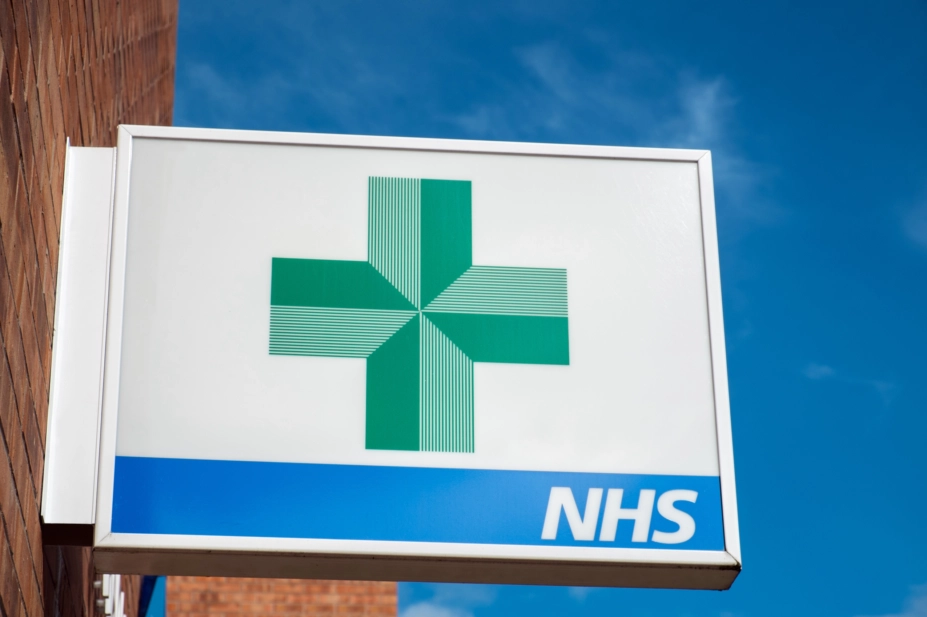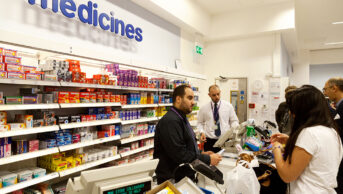
Shutterstock.com
Open access article
The Royal Pharmaceutical Society has made this article free to access in order to help healthcare professionals stay informed about an issue of national importance.
To learn more about coronavirus, please visit: https://www.rpharms.com/resources/pharmacy-guides/wuhan-novel-coronavirus
The cost of delivering medicines to vulnerable patients who are self-isolating or have COVID-19 will be reimbursed, Simon Stevens, the chief executive of NHS England has said.
A joint letter from Stevens and Amanda Pritchard, chief operating officer at NHS England and NHS Improvement, said that “where required” clinical commissioning groups would be funded for the service, as well as for an NHS urgent medicines supply service for patients whose GP surgery was closed. Reimbursement would also be made for “payments to contractors who are required to close due to COVID-19 related reasons”.
Claire Anderson, chair of the RPS‘s English Pharmacy Board, said the letter was “very encouraging”.
“Some of the essential asks we called for, such as providing an NHS funded delivery service for people self-isolating at home, and additional resourcing for the pharmacy network, have already been agreed, which is excellent news for pharmacists on the frontline,” she said.
In a statement issued on 16 March 2020, the Pharmaceutical Services Negotiating Committee (PSNC) said it was in “complex and “ongoing” discussions with the Department of Health and Social Care (DHSC) and NHS England and NHS Improvement “to address the potential impact on community pharmacy” of COVID-19.
Speaking to BBC Radio 4 on 16 March 2020, Simon Dukes, chief executive of the PSNC, said that the delivery of medicines to patients who may be self-isolating during the pandemic was “a real issue”, adding that “if we need medicines delivered, we need to see government funding”.
Pharmacists and pharmacy bodies had expressed concern about how additional home deliveries would be funded.
Leyla Hannbeck, chief executive of the Association of Independent Multiple Pharmacies, said that “our members are very worried. Many are offering deliveries free of charge to vulnerable people, but they are under a lot of pressure and without appropriate funding this service cannot be sustainable”.
Hannbeck added that the body “have been raising this with PSNC and writing directly to the prime minister, asking for appropriate funding for pharmacists to look after the increasing number of patients who need to self-isolate”.
Helga Mangion, policy manager at the National Pharmacy Association, said that “our members are being asked to do more deliveries due to customers self-isolating because of COVID-19. Pharmacies are going above and beyond their already busy schedules to meet the extra demand”.
Amanda Smith, vice chair of Community Pharmacy West Yorkshire, told The Pharmaceutical Journal that it had noticed an increase in delivery requests. “A lot of our older customers are worried about going out. We have seen a huge increase in workload; it feels like Christmas with everyone ordering scripts early and making sure they’ve got supplies of everything in stock.
“We are also seeing more people who are being stopped from going to their surgery so are coming to us instead.”
A spokesperson for CitySprint, which provides a national prescription collection and delivery service, said that the firm “have experienced a moderate increase in demand for our specialist healthcare services over recent weeks, including secure medicine delivery”.
“We will continue to work closely with our customers to ensure good continuity of service and, should we need to, will take steps to prioritise more urgent deliveries in agreement with them,” they added.
In other COVID-19 developments:
- Public Health England (PHE) has issued guidance to advise against the use of products for diagnosing COVID-19 infection in community settings, such as pharmacies. PHE said that there was “little information” on the accuracy of the tests, or on how a patient’s antibody response develops or changes during COVID-19 infection and that is was “not known” whether either a positive or negative result was reliable.
“Currently there is no published evidence about the suitability of these tests for diagnosing COVID-19 infection in a community setting,” the guidance said. - Community Pharmacy Wales has announced that the community pharmacy sore throat test and treat service has been suspended.
- Most pharmacies in England have now received limited supplies of protective equipment (PPE), but local pharmaceutical committees have warned that it is not enough. Tania Farrow, chief officer of Suffolk LPC, said guidance was to use the PPE in cases where there has been a direct risk of transmission of COVID-19, or for decontamination of rooms where people with symptoms have been isolated awaiting further instruction. But she said the PPE supplies were not adequate and there were no stocks to order from the wholesalers. “We now need to go much further in protecting hard working community frontline staff as they struggle to maintain patient services,” she said.
- Andrew Evans, chief pharmacist for Wales, has announced a series of changes to community pharmacy services in Wales, including suspension of the medicine use review service until April 2021.
- Among a package of measures designed to tackle the financial effects of the COVID-19 pandemic, the government has said it has postponed reforms to the off-payroll working rules IR35, until April 2021. Pharmacy bodies had criticised the effect these changes could have on the pharmacist locum workforce and Gareth Jones, head of corporate affairs at the National Pharmacy Association, said: “This is a sensible response to the ongoing spread of COVID-19.”
You may also be interested in

Tackling the NHS drug budget: why we set up a regional collaboration for medicines value

Lack of joined-up working between pharmacy and general practice is ‘nonsensical’, says former BMA chair
